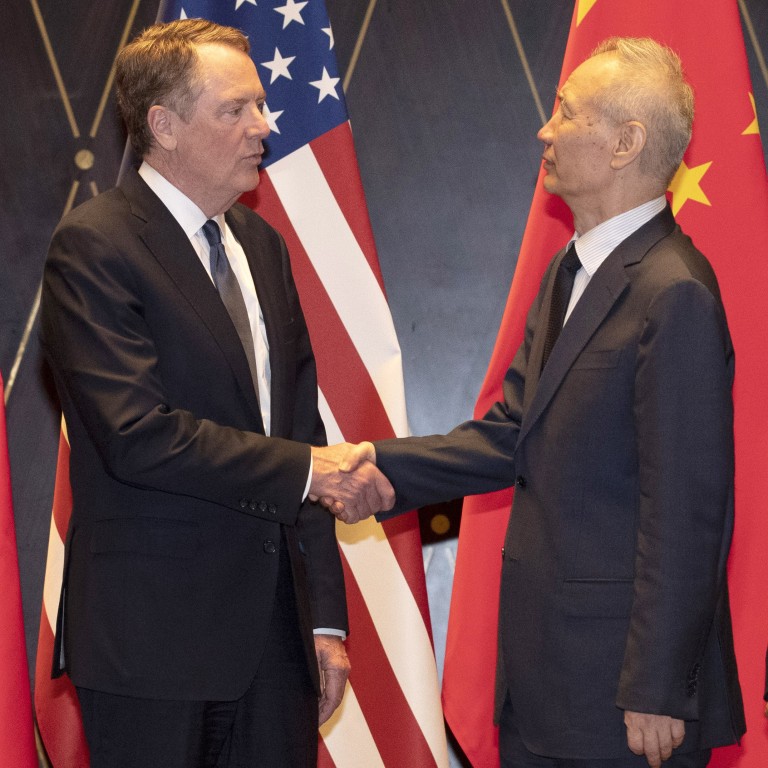
Go-slow efforts to end US-China trade war add to the pressure on Hong Kong
- Given that there is no end in sight to the volatility, the city must remain vigilant lest internal conflict and external conditions push it towards recession
The latest negotiations between China and the United States have brought an end to the trade war no closer. Neither side appears in any hurry to reach a deal. After no more than a working dinner and half a day of talks in Shanghai that touched on contentious issues such as intellectual property rights and technology transfer, they agreed to resume talking next month in the US.
Meanwhile the truce in the tit-for-tat tariff war reached by President Xi Jinping and his American counterpart Donald Trump at their June summit has been preserved, with China agreeing to buy more agricultural goods from the US. This will be positive for efforts by American tech firms to have US bans on component exports for Huawei Technologies eased.
China makes concession on US farm goods in ‘frank’ and ‘constructive’ talks
The outcome reflects political and economic strategy on the Chinese side aimed at striking a balance between sitting out Trump as he enters re-election mode, and avoiding giving the impression of trying to undermine his electoral prospects. Hence the agreement to buy more American farm goods, which touches a sensitive political nerve with Trump because he sees a trade-war related slump in agricultural exports as affecting his rural voter base.
That is not to say that Beijing does not rate Trump a good chance to win a second four-year term. But Chinese analysts think US politics are so volatile ahead of an election that if they agree to a deal with Trump now there is no guarantee that things will not change again in the second term.
The agreement to buy agricultural products may be a message from Beijing to Trump that China is not working against him politically, but it sees no urgent reason to seek a quick deal on other, more complex issues – not even the slowing Chinese economy. This is attributed as much to Beijing’s own efforts to close down so-called zombie firms kept afloat by state credit and subsidies and reduce debt weighing on sustainable economic growth, as to the effects of the trade war. It is a painful phase the country must go through regardless if it is to improve productivity.
Given that there is no end in sight to the volatility, the city must remain vigilant lest internal conflict and external conditions push it towards recession.

